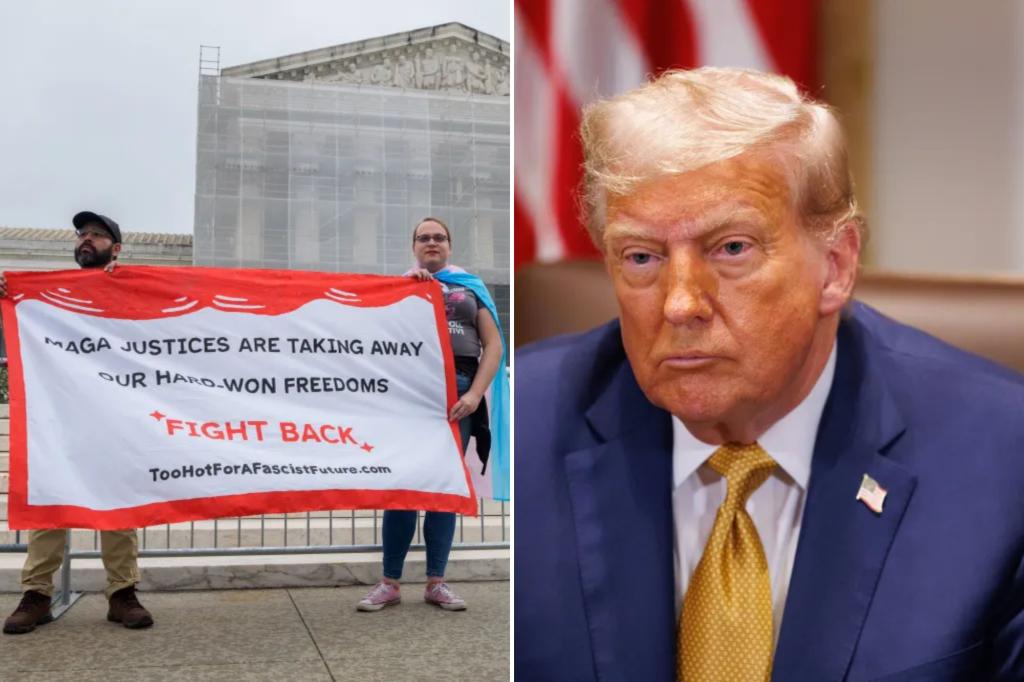In a landmark decision, a federal judge in New Hampshire has blocked President Donald Trump’s executive order seeking to end birthright citizenship. U.S. District Judge Joseph Laplante issued a preliminary injunction, granting nationwide class certification status to all infants impacted by the order. This ruling marks a significant challenge to the administration’s immigration policies and raises critical questions about the interpretation of the 14th Amendment.
This article delves into the details of Judge Laplante’s decision, its legal rationale, and the potential implications for birthright citizenship in the United States. We will explore the arguments presented by both sides, the historical context of the 14th Amendment, and the broader political landscape surrounding immigration policy.
The Executive Order and its Challenges
On the first day of his second term, President Trump signed an executive order directing all U.S. government agencies to refuse to issue citizenship documents to children born to illegal immigrants or those without at least one parent who is an American citizen or lawful permanent resident. This order was immediately met with legal challenges from over 22 U.S. states and immigrants’ rights groups, who argued that it was unconstitutional and violated established legal precedent.
“This effort to end birthright citizenship is both unconstitutional and ‘unprecedented,’ and threatened more than 100 years of legal precedent.”
The legal basis for birthright citizenship lies in the 14th Amendment to the U.S. Constitution, which states that all persons born or naturalized in the United States and subject to its jurisdiction are citizens. However, the Trump administration argued that this amendment does not apply to children born to parents who are not legally residing in the country.
Judge Laplante’s Decision: Irreparable Harm
U.S. District Judge Joseph Laplante sided with the plaintiffs, issuing a preliminary injunction that blocks the enforcement of the executive order. Judge Laplante stated that deprivation of citizenship, as protected by the 14th Amendment, and changes in longstanding policy would create “irreparable harm.” The injunction also narrows the scope of the class to infants, removing parents from the case.
This ruling emphasizes the importance of protecting the rights of children born in the United States, regardless of their parents’ immigration status. The judge’s decision recognizes the potential long-term consequences of denying citizenship to these children, including limited access to education, healthcare, and other essential services.
Supreme Court’s Role and Future Appeals
The case comes after the Supreme Court reviewed a similar case earlier this year and ruled 6-3 that plaintiffs seeking nationwide relief must file their cases as a class action lawsuit. This ruling narrowed the instances in which lower district courts can issue universal injunctions but did not address the legality of Trump’s executive order.
It is almost certain that the Trump administration will appeal Judge Laplante’s decision. The legal battle over birthright citizenship is likely to continue, potentially reaching the Supreme Court once again. The high court’s eventual ruling will have far-reaching implications for immigration law and the rights of future generations.
Enforcement Plans and Advocacy Group Response
Despite the legal challenges, the Trump administration has indicated its intent to begin enforcing the birthright citizenship order as early as July 27, in recognition of a 30-day stay included in the Supreme Court’s ruling. This timeline underscores the urgency of the legal battle and the potential impact on families across the country.
Advocacy groups, including the ACLU, have re-filed class action lawsuits in federal courts to challenge the executive order. Lawyers for the Trump administration have stated that the Supreme Court’s ruling did not preclude it from taking other actions before that date, and plan to “immediately” begin developing and issuing public guidance on the order.
Possible Consequences and Advocates’ Warnings
Advocates have warned that the possible fallout from the order could prove “catastrophic.” The denial of citizenship to children born in the U.S. could lead to a range of negative outcomes, including increased poverty, limited educational opportunities, and reduced access to healthcare. It could also create a subclass of individuals without full rights and protections under the law.
The debate over birthright citizenship also raises broader questions about immigration policy and national identity. Some argue that restricting birthright citizenship would help to control illegal immigration and protect national resources. Others maintain that it would undermine core American values of equality and opportunity.
Conclusion: A Nation Divided on Citizenship
Judge Joseph Laplante’s decision to block President Trump’s executive order on birthright citizenship highlights the deep divisions and legal complexities surrounding immigration policy in the United States. The ruling underscores the importance of the 14th Amendment and the rights of children born within the country.
As the legal battle continues, the future of birthright citizenship remains uncertain. The eventual outcome will have profound implications for families, communities, and the very definition of what it means to be an American. Stay with FYM News for continuous coverage of this developing story.

Leave a Reply